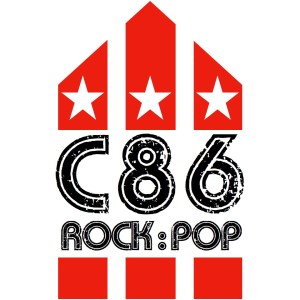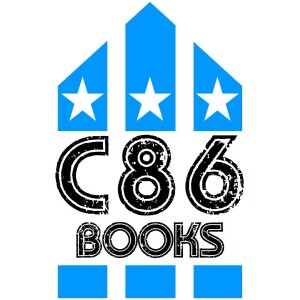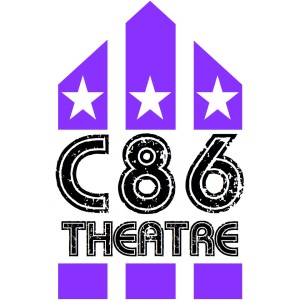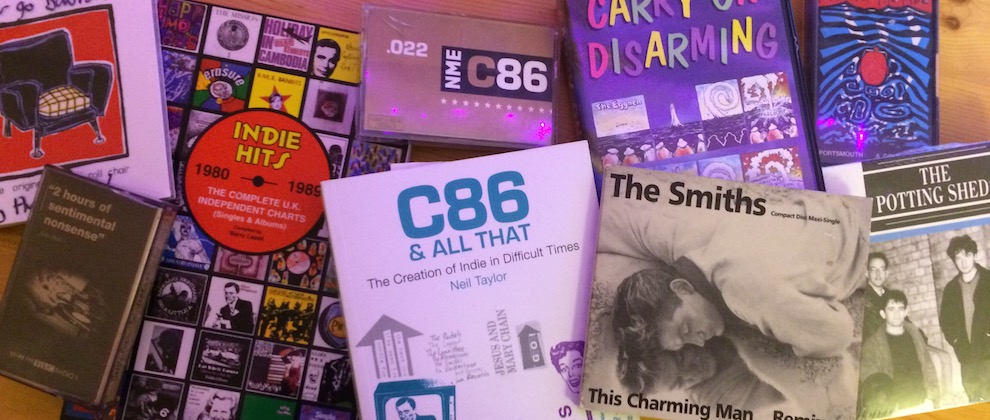Episodes

Wednesday Feb 05, 2020
Shirley Collins special
Wednesday Feb 05, 2020
Wednesday Feb 05, 2020
Shirley Collins in conversation with David Eastaugh
Wednesday Feb 05, 2020
The Nightingales with Robert Lloyd
Wednesday Feb 05, 2020
Wednesday Feb 05, 2020
The Nightingales with Robert Lloyd with David Eastaugh

Wednesday Feb 05, 2020
Bob Mazzer in conversation
Wednesday Feb 05, 2020
Wednesday Feb 05, 2020
Bob Mazzer in conversation with David Eastaugh

Wednesday Feb 05, 2020
Bruce Lacey in conversation
Wednesday Feb 05, 2020
Wednesday Feb 05, 2020
Bruce Lacey in conversation with David Eastaugh
Wednesday Feb 05, 2020
Radio Birdman with Deniz Tek
Wednesday Feb 05, 2020
Wednesday Feb 05, 2020
Radio Birdman was one of the first Australian independent bands to carry the punk label, along with the Saints. They were formed by Deniz Tek and Rob Younger in Sydney in 1974. The group influenced the work of many successful, mainstream bands, and are now considered instrumental in Australia's musical growth.
Sunday Feb 02, 2020
Urusei Yatsura special with Graham Kemp
Sunday Feb 02, 2020
Sunday Feb 02, 2020
Urusei Yatsura special with Graham Kemp in conversation with David Eastaugh
Saturday Feb 01, 2020
Cherry Red special with Iain McNay
Saturday Feb 01, 2020
Saturday Feb 01, 2020
Cherry Red special with Iain McNay I conversation with David Eastaugh
Thursday Jan 30, 2020
David Devant & His Spirit Wife special with Mikey Georgeson
Thursday Jan 30, 2020
Thursday Jan 30, 2020
David Devant & His Spirit Wife special with Mikey Georgeson in conversation with David Eastaugh
Wednesday Jan 29, 2020
Easy special with Johan Holmlund
Wednesday Jan 29, 2020
Wednesday Jan 29, 2020
Easy special with Johan Holmlund in conversation with David Eastaugh
It was twenty-seven years ago that Swedish Indie band Easy released their highly acclaimed debut album ‘Magic Seed’ on the hip Blast First label. Label supremo Paul Smith signed the band after listening to their demo tape while taking his evening bath.
The band had something special, their sound may contain many elements from Pop history, but there was something unique in the delivery. Smith saw the perfect combination of Sonic Youth-like intensity and the sweet harmonies of The Beach Boys.
Easy released three singles, Castle Train/ Cloud Chamber, He Brings the Honey and Horoscope (all U.K. Indie Chart Hits), toured all around Europe with bands like The Gun Club, The House of Love, Lush, The Charlatans and The Jesus and Mary Chain.
They disbanded in 1994 but not before leaving an impact, when going back to Sweden they found a new Indie scene full of bands who had been inspired by their success.
In 2010, after celebrating the twentieth anniversary of ‘Magic Seed’ with some live shows, they decided to write some new songs and the tracks on ‘A Heartbeat from Eternity’ have all been recorded since the comeback. The latest track ‘Ask theSky’ was recorded in June 2017, produced by Swedish producer Charlie Storm, who in the last couple of years has scored a string of Swedish number one hits (Håkan Hellström, Henrik Berggren, Mando Diao).
”I think Easy will help break down that traditional English snobbish attitude towards European acts. People will be made to sit up and take notice, ‘cos what they’re doing right now is intrinsically more valid than most of the inadequate who clog up record space in the Rough Trade shop. Simple, really.”
NME
“Easy like nothing better than to reinvent themselves in the middle of a song. Easy come, Easy go? I doubt it very much.”
Melody Maker
Sunday Jan 26, 2020
Hangman's Beautiful Daughters with Sandy Fleming
Sunday Jan 26, 2020
Sunday Jan 26, 2020
Hangman's Beautiful Daughters with Sandy Fleming in conversation with David Eastaugh
Thursday Jan 23, 2020
Redd Kross with Steve McDonald
Thursday Jan 23, 2020
Thursday Jan 23, 2020
Redd Kross with Steve McDonald in conversation with David Eastaugh
Sunday Jan 19, 2020
Hangman's Beautiful Daughters special with Gordon Dawson
Sunday Jan 19, 2020
Sunday Jan 19, 2020
Hangman's Beautiful Daughters special with Gordon Dawson in conversation with David Eastaugh
Saturday Jan 18, 2020
The Astronauts with Mark Astronauts
Saturday Jan 18, 2020
Saturday Jan 18, 2020
The Astronauts with Mark Astronauts in conversation with David Eastaugh
Thursday Jan 16, 2020
Died Pretty with Brett Myers
Thursday Jan 16, 2020
Thursday Jan 16, 2020
Died Pretty with with Brett Myers in conversation with David Eastaugh
Died Pretty, sometimes The Died Pretty, was an Australian alternative rock band founded by mainstays Ron Peno (lead singer) and Brett Myers (lead guitarist and backing vocalist) in Sydney in 1983. The band was briefly called Final Solution. Their music started from a base of early electric Bob Dylan with psychedelic influences, including The Velvet Underground and Television. They were managed by John Needham, who is the owner of Citadel Records, their main label.
Died Pretty's 1990s albums, Doughboy Hollow, Trace and Sold, appeared on the Australian Recording Industry Association (ARIA) Albums Chartsbut they had more success on the alternate scene. According to rock music historian Ian McFarlane they "unashamedly plundered rock's past to arrive at an original sound that was always passionate, atmospheric and uplifting ... produced some of the most inspirational rock music heard in Australia". The group formally disbanded in 2002 but the members have reunited on a number of occasions for short tours in Australia. Most recently they undertook a joint national tour with Radio Birdman in June and July 2017.
Thursday Jan 16, 2020
Dave Graney - The Moodists
Thursday Jan 16, 2020
Thursday Jan 16, 2020
Dave Graney from The Moodists & much much more in conversation with David Eastaugh
David John "Dave" Graney is an Australian rock musician, singer-songwriter and author from Melbourne. Since 1978, Graney has been accompanied by drummer Clare Moore. The pair have fronted numerous bands including The Moodists (1980 to 1987), Dave Graney and The White Buffaloes (1989 to 1990), Dave Graney and Coral Snakes (1987 to 1989, 1991 to 1997), The Dave Graney Show (1998 to 2003) , Dave Graney and Clare Moore featuring the Lurid Yellow Mist or Dave Graney and the Lurid Yellow Mist (2004 to 2011) and currently, dave graney and the mistLY. He was awarded 'Best Male Vocalist' at the ARIA Music Awards of 1996 for his work on The Soft 'n' Sexy Sound, while "Feelin' Kinda Sporty" won 'Best Video' in 1997 and he has received seven other ARIA Award nominations. He has
Sunday Jan 12, 2020
The Newtown Neurotics with Steve Drewett
Sunday Jan 12, 2020
Sunday Jan 12, 2020
The Newtown Neurotics with Steve Drewett in conversation with David Eastaugh
As The Newtown Neurotics, the band began their career playing punk heavily indebted stylistically to The Clash and The Ramones. They released a series of singles from 1979 – later collected on the album 45 Revolutions per Minute – and debut album Beggars Can Be Choosers in 1983. Over the course of the 1980s, the band dropped the "Newtown" from its name and became simply The Neurotics; along with the name change came a stylistic broadening, including slower tempos and horn arrangements. They released several albums on noted UK postpunk label Jungle Recordsincluding Repercussions in 1986 and Is Your Washroom Breeding Bolsheviks in 1988.
Lead singer and guitarist Steve Drewett took openly socialist stances in his lyrics throughout the course of the band's career and currently displays an anarcho-syndicalist sticker on his guitar. From 1986 the Neurotics became one of the first Western bands to play behind the Iron Curtain, with successive tours of East Germany alongside artists like Billy Bragg and Attila the Stockbroker.
When bassist Colin Dredd contracted pleurisy, he left the band; Mac (Travis Cut /The Pharaohs /The Skabilly Rebels) was brought in to play bass for some farewell shows (at which the band's entire catalogue was played), and the band called it quits in October 1988.
The band reformed as The Newtown Neurotics for reunion shows in London and Brighton leading up to Blackpool's 2006 Wasted and 2008 Rebellion punk festivals, their biggest British audiences to date. A new rhythm section of David Walsh (Drums) and Adam Smith (Bass) (Both from Harlow Newtown) backed Steve Drewett from 2007, including an appearance in the Empress Ballroom, Blackpool for the 2009 Rebellion Festival. In 2010 Steve Drewett made his first US appearance, playing at The Big Takeover magazine's 30th Anniversary festival.
In 2015, Simon Lomond rejoined the band for a string of dates including a return to the Rebellion Festival. Original bassist, Colin Dredd (Masters), died on 19 May 2015.
In 2018, funds for a full-length documentary on the band's history were successfully raised through Kickstarter. Kick Out!: The Newtown Neurotics Story is directed by Luke J. Baker and is set for completion in 2019.
Saturday Jan 11, 2020
Friday Jan 10, 2020
A Certain Ratio special with Donald Johnson
Friday Jan 10, 2020
Friday Jan 10, 2020
A Certain Ratio special with Donald Johnson in conversation with David Eastaugh
A Certain Ratio (abbreviated as ACR) are an English post-punk band formed in 1977 in Flixton, Greater Manchester by Peter Terrell (guitar, electronics) and Simon Topping (vocals, trumpet), with additional members Jez Kerr (bass, vocals), Martin Moscrop (trumpet, guitar), Donald Johnson (drums), and Martha Tilson (vocals) joining soon after. Drawing heavy influence from funk as well as disco and Latin percussion, the band were among to first to debut on Tony Wilson's Factory Records in 1979 with "All Night Party," produced by Martin Hannett. During ACR's early years with Factory, they scored seven Top Ten U.K. independent releases, highlighted by "Flight" and "Waterline," and released five albums beginning with The Graveyard and the Ballroom (1979).
Following late-'80s and early-'90s phases with major-label A&M and Rob Gretton's independent Robs Records, ACR were intermittently active. They returned to the studio for the 2008 album Mind Made Up and since then have continued to perform, with their catalog recirculated through an arrangement with Mute Records. ACR continued to perform into the late 2010s, and during 2017-2019 expanded, reissued, and anthologized their catalog once more, this time through Mute Records.

Monday Jan 06, 2020
Martin Newell in conversation
Monday Jan 06, 2020
Monday Jan 06, 2020
Martin Newell in conversation with David Eastaugh
Martin Newell is an English singer-songwriter, poet, columnist, and author who leads the Cleaners from Venus, a guitar popband with jangly, upbeat arrangements. He is also regarded as a significant figure in the history of cassette culture and DIY music. His most popular work is The Greatest Living Englishman (1993), produced by Andy Partridge of XTC.
Sunday Jan 05, 2020
Shriekback with Barry Andrew
Sunday Jan 05, 2020
Sunday Jan 05, 2020
Shriekback with Barry Andrew in conversation with David Eastaugh
Shriekback was originally formed in 1981 by Barry Andrews, and Dave Allen, expanding to a trio with the addition of Carl Marsh. They enjoyed some success on the dance chart on their original Y Records label, and had a string of hits on the UK Indie Chart, while their debut album, Care (1983) was picked up by Warner in the United States. They left Y for Arista Records for 1984's Jam Science, also recruiting drummer Martyn Barker. The album reached number 85 on the UK Albums Chart, and the single "Hand on my Heart" charted in the Top 60 in the UK. They recorded the 1985 album Oil & Gold on Arista (released on Island Records in the US). Marsh left Shriekback during the recording of Oil & Goldand was replaced on guitar by Mike Cozzi, with Andrews taking over lead vocals. Shriekback also left Arista and signed to Island Records for whom they recorded the 1986 album Big Night Music,[4] after which Allen left to rejoin Gang of Four, and Shriekback remained a collaborative centred on Andrews. Allen would also go on to play in King Swamp and The Elastic Purejoy. Marsh was also in the band Happyhead.
After a further album in 1988, Go Bang!, the band split up. Andrews continued working on other projects before re-forming Shriekback in 1992, although after the single "The Bastard Sons of Enoch" and album Sacred City, there would be no further releases until 2000's Naked Apes & Pond Life album.
Both Allen and Marsh returned to the studio to contribute to the recording of Shriekback's 2003 release Having a Moment. Since Having a Moment, Andrews has recorded three albums[citation needed] for Malicious Damage (Killing Joke's original label) under the Shriekback moniker. Film director Michael Mann was a fan of Shriekback, and used several of their songs in his films Manhunter and Band of the Hand, and in his television series Miami Vice.
Shriekback are still actively producing music and released a studio album in May of 2018, Why Anything? Why This?. In 2019, the same lineup of Andrews, Barker, and Marsh recorded their self-released, 15th full-length studio album, Some Kinds of Light on 6 December 2019.
Music composed by Shriekback is used as the theme song for the Squaring the Strange podcast hosted by Benjamin Radford and Pascual Romero. It was selected due to the duo's fondness for music from the 1980s, and particularly for this band.
